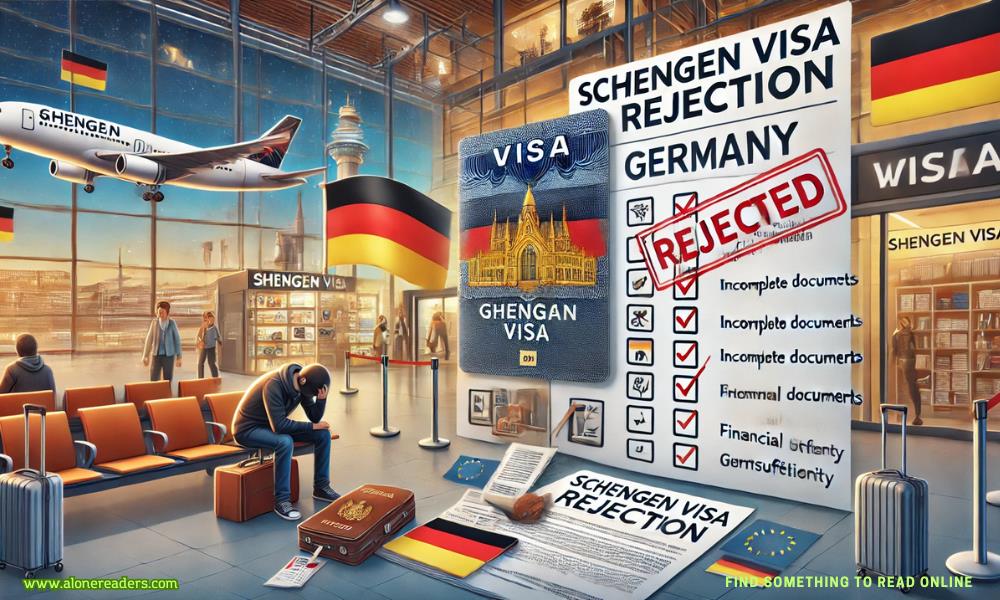
Germany is one of the most popular destinations for Schengen visa applicants. From its rich cultural history to modern architecture and scenic landscapes, Germany attracts millions of visitors annually. However, obtaining a Schengen visa for Germany can be challenging due to strict application requirements and careful scrutiny of documents. This article will discuss common reasons for Schengen visa rejection, how to avoid them, and provide a comprehensive guide on applying for this visa.
A Schengen visa allows holders to travel freely within the 27 Schengen Area countries for up to 90 days within a 180-day period. Germany, as a member, adheres to the common Schengen visa regulations. This visa is suitable for tourism, business trips, family visits, and short-term study or training.
To apply for a Schengen visa for Germany, applicants must meet specific criteria:
Completed Application Form
Fill out the official visa application form accurately. You can download it from the German Missions website.
Valid Passport
Photographs
Two recent passport-sized photographs meeting Schengen visa photo requirements.
Proof of Financial Means
Bank statements for the last three months or a sponsorship letter showing sufficient funds.
Travel Insurance
Travel insurance covering medical emergencies, accidents, and repatriation costs. The coverage must be at least €30,000.
Proof of Accommodation
Hotel reservations, invitation letters, or proof of a place to stay.
Travel Itinerary
Detailed flight reservation and itinerary covering your entry, stay, and exit from the Schengen Zone.
Proof of Purpose
Visa Fee
The standard fee is €80 for adults and €40 for children aged 6–12.
Incomplete or Incorrect Documentation
Missing or improperly completed forms often lead to rejection. Examples include:
How to Avoid: Double-check all documents against the checklist provided by the German consulate or visa center.
Unclear Purpose of Travel
If the consulate doubts your intentions or suspects you may overstay, your application could be denied.
How to Avoid: Provide a detailed and convincing travel itinerary, including return flight bookings.
Insufficient Financial Proof
Demonstrating inadequate funds to cover your stay may result in rejection.
How to Avoid: Ensure your bank account reflects a stable balance covering daily expenses of at least €45–€60 per day during your stay.
Invalid Travel Insurance
Insurance that doesn’t meet the Schengen requirements or isn’t valid in all Schengen countries can result in a rejection.
How to Avoid: Purchase a policy from a recognized provider covering all Schengen countries and emergencies.
Past Visa Violations or Overstays
Previous non-compliance with Schengen visa regulations can be grounds for refusal.
How to Avoid: Always comply with visa conditions and avoid overstaying.
Inconsistent Information
Discrepancies between your documents and statements may raise red flags.
How to Avoid: Ensure all your documents are consistent, from travel dates to personal details.
Criminal Record
A history of criminal activity, especially involving security concerns, can result in a rejection.
How to Avoid: Provide a police clearance certificate if requested and demonstrate reformed behavior.
Determine the Type of Visa
Depending on your purpose, apply for the relevant visa type (e.g., tourist, business, family visit).
Collect Documents
Gather all required documents as per the checklist.
Book an Appointment
Schedule an appointment at the nearest German consulate or visa application center.
Submit the Application
Attend the appointment in person, submit your application, and provide biometric data (fingerprints).
Pay the Fees
Pay the applicable visa fees during submission.
Track Your Application
Use the tracking service provided by the visa center or consulate to monitor your application status.
Apply Early
Submit your application at least 3–6 weeks before your intended travel date.
Use a Comprehensive Checklist
Follow the official document checklist provided by the German Missions website.
Provide Strong Proof of Ties to Your Home Country
Include employment letters, property ownership documents, or family commitments that demonstrate you’ll return after your trip.
Practice for Your Visa Interview
Be prepared to answer questions clearly and confidently.
Avoid Fake Documents
Submitting forged or fraudulent documents leads to automatic rejection and possible legal consequences.
A standard Schengen visa allows a stay of up to 90 days within 180 days. Extensions are rare and granted only for exceptional reasons like medical emergencies or force majeure events.
Note: Additional service fees may apply if using a visa center.
Conclusion
Securing a Schengen visa for Germany requires careful preparation and adherence to strict guidelines. By understanding the common reasons for rejection and taking proactive steps to address them, you can improve your chances of success. Always rely on trusted resources like the official German government website to ensure accurate and up-to-date information.
Prepare thoroughly, double-check your documents, and approach the process with confidence for a smooth visa application experience.